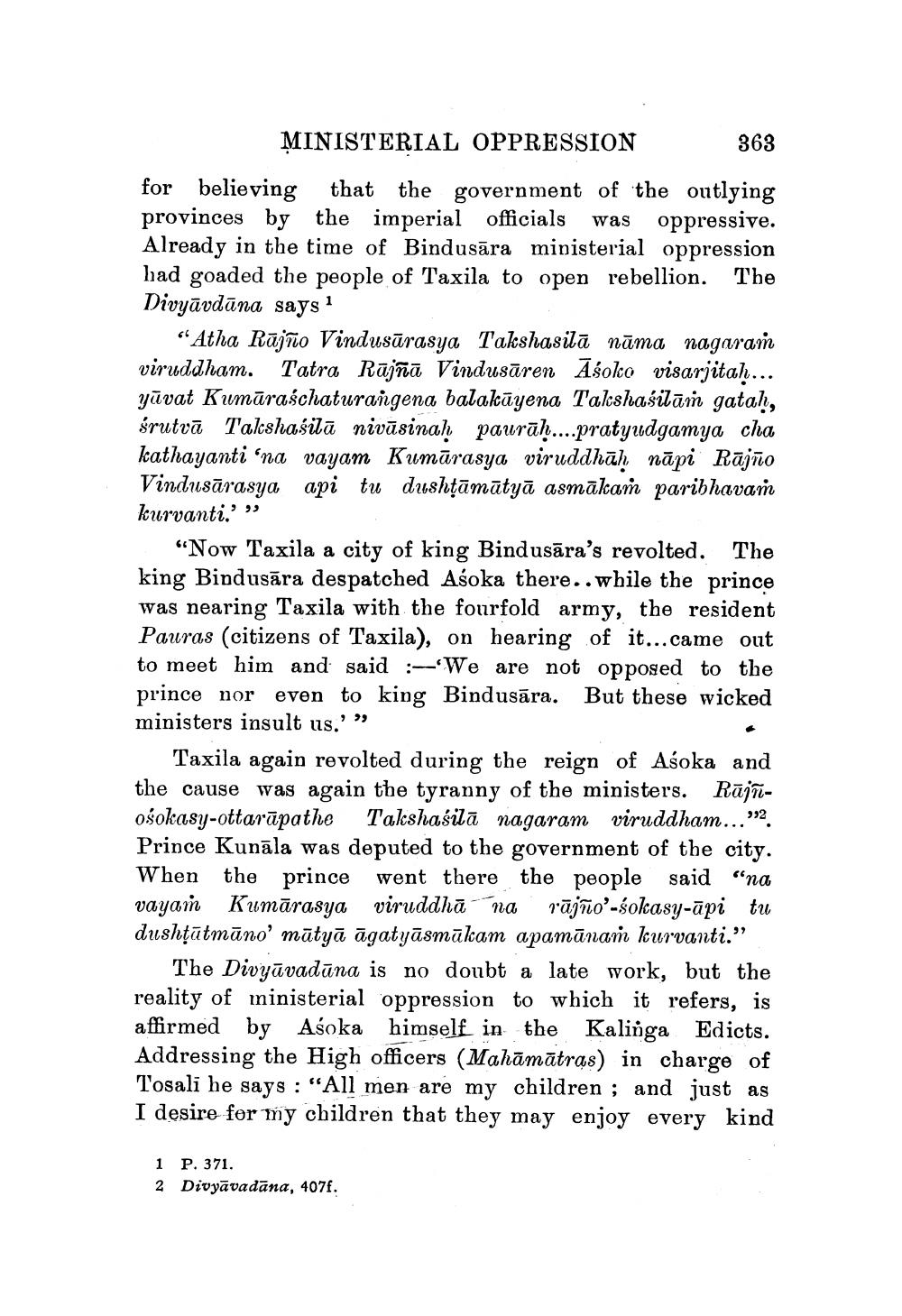________________
MINISTERIAL OPPRESSION 363 for believing that the government of the outlying provinces by the imperial officials was oppressive. Already in the time of Bindusāra ministerial oppression had goaded the people of Taxila to open rebellion. The Divyāvdāna says 1
“ Atha Rājño Vindusārasya Takshasilā nāma nagaram viruddham. Tatra Rajñā Vindusāren Āśoko visarjitah... yūvat Kumāraśchaturangena balakāyena Talshasilām gatah, śrutvā Takshasilā nivūsinah paurāh....pratyudgamya cha kathayanti 'na vayam Kumārasya viruddhāh nāpi Rajño Vindusārasya api tu dushțāmātyā asmākam paribhavam kurvanti.'”
"Now Taxila a city of king Bindusāra's revolted. The king Bindusāra despatched Aśoka there..while the prince was nearing Taxila with the fourfold army, the resident Pauras (citizens of Taxila), on hearing of it...came out to meet him and said :-We are not opposed to the prince nor even to king Bindusāra. But these wicked ministers insult us.'»
Taxila again revolted during the reign of Aśoka and the cause was again the tyranny of the ministers. Rājsiośokasy-ottarūpathe Takshasilā nagaram viruddham...'2. Prince Kunāla was deputed to the government of the city. When the prince went there the people said "na vayan Kumārasya viruddhā na rājño'-śokasy-āpi tu dushțātmāno' mātyā āgatyāsmākam apamānam kurvanti.”
The Divyāvadūna is no doubt a late work, but the reality of ministerial oppression to which it refers, is affirmed by Aśoka himself in the Kalinga Edicts. Addressing the High officers (Mahāmātras) in charge of Tosali he says : "All men are my children ; and just as I desire for my children that they may enjoy every kind
1 P. 371. 2 Divyāvadāna, 407f.




